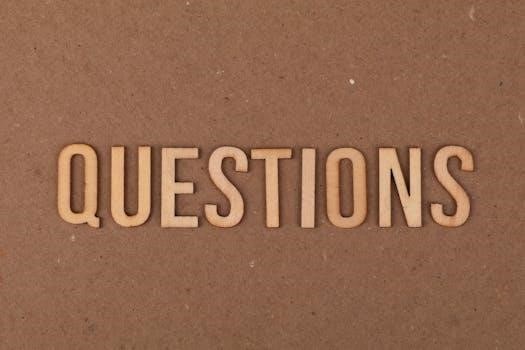Article Plan⁚ The Gettysburg Address ⎻ Unveiling Its Significance
Dive into an exploration of Abraham Lincoln’s Gettysburg Address. This analysis unveils the speech’s profound significance. Discover historical context‚ key themes‚ and its enduring impact on American identity. Let’s unpack its power.
The Gettysburg Address‚ delivered by President Abraham Lincoln on November 19‚ 1863‚ stands as a cornerstone of American oratory and a pivotal statement on national identity. This brief yet profoundly impactful speech‚ uttered during the dedication of the Soldiers’ National Cemetery in Gettysburg‚ Pennsylvania‚ transcends its immediate purpose. It serves as a powerful meditation on the principles upon which the United States was founded and a solemn call to action to preserve those principles amidst the throes of the Civil War.
In just over two minutes‚ Lincoln masterfully encapsulates the essence of American ideals⁚ liberty‚ equality‚ and self-governance. He reframes the narrative of the Civil War‚ shifting it from a mere conflict over states’ rights to a struggle for the very survival of a nation “conceived in liberty‚ and dedicated to the proposition that all men are created equal.” The address is not simply a eulogy for the fallen soldiers; it is a re-dedication of the living to the unfinished work of ensuring that “government of the people‚ by the people‚ for the people‚ shall not perish from the earth.”
This introduction sets the stage for a deeper exploration of the Gettysburg Address‚ examining its historical context‚ rhetorical artistry‚ and enduring legacy. It highlights how this speech continues to shape our understanding of American identity and inspire generations to strive for a more perfect union.

Historical Context⁚ The Civil War’s Turning Point
To fully appreciate the significance of the Gettysburg Address‚ understanding its historical context within the American Civil War is crucial. By late 1863‚ the war had raged for over two years‚ exacting a devastating toll on the nation. The Union victory at the Battle of Gettysburg‚ fought just four months prior to the address‚ marked a crucial turning point in the conflict‚ halting the Confederate advance into the North and bolstering Union morale.

However‚ despite this victory‚ the war’s outcome remained uncertain‚ and the nation was deeply divided. Public support for the war effort was waning‚ and Lincoln faced immense pressure to articulate a clear vision for the future of the Union. The dedication of the Soldiers’ National Cemetery provided an opportunity to not only honor the fallen but also to rally the nation around a renewed sense of purpose.
The Gettysburg Address‚ therefore‚ was delivered at a moment of profound national crisis and uncertainty. Lincoln’s words served as a beacon of hope‚ reminding the nation of its founding ideals and urging citizens to persevere in the face of immense sacrifice. The speech’s brevity and eloquence belied the weight of the historical moment and the profound challenges facing the nation.

The Setting⁚ Gettysburg Battlefield and Dedication
The Gettysburg Address was delivered on November 19‚ 1863‚ at the dedication of the Soldiers’ National Cemetery in Gettysburg‚ Pennsylvania. This location held immense significance as the site of the pivotal Battle of Gettysburg‚ fought just four months earlier. The battlefield itself served as a stark reminder of the brutal realities of war and the immense sacrifices made by soldiers on both sides.
The dedication ceremony was a somber occasion‚ attended by government officials‚ dignitaries‚ and thousands of citizens. The atmosphere was one of mourning and reflection‚ as attendees grappled with the immense loss of life and the uncertain future of the nation. The main speaker of the day was Edward Everett‚ a renowned orator‚ who delivered a lengthy two-hour speech.
In contrast‚ Lincoln’s address was remarkably brief‚ lasting only a few minutes. However‚ its brevity did not diminish its impact. The setting of the Gettysburg battlefield‚ combined with the solemnity of the dedication ceremony‚ amplified the power of Lincoln’s words‚ transforming them into a timeless testament to the ideals of liberty‚ equality‚ and sacrifice. The visual landscape intensified the speech’s resonance.
Key Themes⁚ Liberty‚ Equality‚ and Sacrifice
The Gettysburg Address is a powerful exploration of core American ideals‚ prominently featuring liberty‚ equality‚ and sacrifice. Lincoln masterfully weaves these themes together to redefine the purpose of the Civil War and the nation’s future.
Liberty⁚ The address invokes the founding fathers’ vision of a nation “conceived in liberty.” Lincoln emphasizes that the war is a test of whether a nation founded on such principles can endure. He frames the sacrifices at Gettysburg as essential for preserving liberty for future generations‚ ensuring self-governance prevails.
Equality⁚ Lincoln’s assertion that the nation was “dedicated to the proposition that all men are created equal” is a powerful statement on equality. This phrase‚ drawn from the Declaration of Independence‚ underscores the moral imperative to abolish slavery and create a society where all individuals are treated with dignity and respect. The address subtly championed inclusivity.
Sacrifice⁚ The Gettysburg Address is a tribute to the soldiers who died at Gettysburg. Lincoln suggests that their sacrifice has consecrated the ground far beyond any words spoken at the dedication. He calls upon the living to dedicate themselves to the “unfinished work” for which the soldiers gave their lives‚ emphasizing the ongoing commitment required to achieve a more perfect union.
Analyzing the Language⁚ Rhetorical Devices and Power
The Gettysburg Address’s enduring power lies not only in its message but also in Lincoln’s masterful use of rhetorical devices. His concise and deliberate language amplifies the speech’s emotional impact and intellectual resonance.

Anaphora⁚ Lincoln employs anaphora‚ the repetition of a word or phrase at the beginning of successive clauses‚ most notably with “we cannot dedicate‚ we cannot consecrate‚ we cannot hallow.” This repetition emphasizes the inadequacy of words to honor the sacrifices made at Gettysburg‚ shifting the focus to action.
Allusion⁚ The address alludes to the Declaration of Independence with the phrase “all men are created equal‚” grounding the Civil War in the nation’s founding principles and highlighting the hypocrisy of slavery within a nation supposedly dedicated to freedom. This connects past ideals to present struggles.
Metaphor⁚ Lincoln uses metaphors to convey complex ideas succinctly. He refers to the nation as “conceived in liberty‚” personifying it as a living entity with a purpose. The “unfinished work” metaphor signifies the ongoing struggle for equality and the nation’s continued evolution.
Conciseness⁚ The speech’s brevity is remarkable‚ containing only . This conciseness forces every word to carry significant weight‚ contributing to the address’s memorability and impact.
Impact on American Identity⁚ Shaping National Values
The Gettysburg Address profoundly reshaped American identity by redefining the nation’s core values. Lincoln’s words transcended the immediate context of the Civil War‚ articulating a vision of the United States grounded in equality‚ liberty‚ and self-sacrifice. The speech shifted the war’s purpose from merely preserving the Union to achieving a “new birth of freedom” for all.
Reinforcing Equality⁚ By invoking the Declaration of Independence’s assertion that “all men are created equal‚” Lincoln challenged the institution of slavery and laid the groundwork for a more inclusive national identity. This re-emphasis on equality became a cornerstone of American values.
Defining National Purpose⁚ The address redefined the purpose of the United States‚ framing it as a nation dedicated to the proposition that all individuals are entitled to equal rights and opportunities. This vision inspired generations to strive for a more just and equitable society.
Promoting National Unity⁚ In the midst of a divisive civil war‚ Lincoln’s speech sought to unite the nation around shared ideals. He emphasized the importance of honoring the sacrifices of those who fought at Gettysburg by dedicating themselves to the “unfinished work” of building a more perfect union.
Inspiring Civic Engagement⁚ Lincoln’s call for “a new birth of freedom” encouraged active civic engagement and a commitment to upholding democratic values. The Gettysburg Address continues to inspire Americans to participate in shaping their nation’s future.
Enduring Legacy⁚ Relevance in Modern Times
The Gettysburg Address‚ though delivered over a century and a half ago‚ retains remarkable relevance in modern times. Its themes of unity‚ equality‚ and sacrifice continue to resonate deeply‚ offering guidance and inspiration in navigating contemporary challenges.
Call for Unity⁚ In an era marked by political polarization and social divisions‚ the Gettysburg Address reminds us of the importance of finding common ground and working together towards shared goals. Lincoln’s plea for national unity remains a powerful message for overcoming division.
Striving for Equality⁚ The ongoing struggle for social justice and equality finds echoes in Lincoln’s commitment to a “new birth of freedom.” The Gettysburg Address serves as a reminder of the unfinished work of ensuring equal rights and opportunities for all members of society.
Honoring Sacrifice⁚ The address’s emphasis on honoring the sacrifices of those who have served the nation continues to be relevant in recognizing the contributions of veterans and active-duty military personnel. It prompts reflection on the cost of freedom and the importance of honoring those who defend it.
Inspiration for Leadership⁚ The Gettysburg Address serves as a model for effective leadership‚ demonstrating the power of concise and eloquent language to inspire and unite. Its enduring relevance lies in its ability to transcend time and speak to the fundamental values of humanity.
Common Questions Answered⁚ Addressing Misconceptions
The Gettysburg Address‚ despite its brevity and fame‚ is often subject to misconceptions. Addressing these misunderstandings is crucial for a comprehensive understanding of its significance.
Was Lincoln the primary speaker? A common misconception is that Lincoln was the main orator at Gettysburg. Edward Everett delivered a two-hour speech‚ while Lincoln’s was brief. This highlights the power of concise language.
Did Lincoln write it on the back of an envelope? The romanticized image of Lincoln scribbling the address on an envelope is largely untrue. He prepared drafts meticulously beforehand‚ demonstrating his dedication to crafting the perfect message.
What did Lincoln mean by “new birth of freedom?” This phrase is often misinterpreted. Lincoln alluded to a renewed commitment to equality and the ideals of the Declaration of Independence‚ moving beyond the compromises made regarding slavery.
Why is the speech so short? Its brevity is a strength‚ not a weakness. Lincoln understood the power of concise language to convey profound ideas. Its succinctness contributes to its memorability and impact.
Is it relevant today? Absolutely. Its themes of unity‚ equality‚ and sacrifice remain timeless and relevant in addressing contemporary challenges and inspiring future generations.
Further Exploration⁚ Resources and Study Guides
To deepen your understanding of the Gettysburg Address‚ numerous resources and study guides are available. These materials offer diverse perspectives and analytical tools for comprehensive exploration. They provide invaluable insights into the historical context‚ rhetorical devices‚ and enduring legacy of Lincoln’s address.
Online Archives⁚ Websites like the Library of Congress and the National Archives provide access to original documents‚ photographs‚ and transcriptions related to the Gettysburg Address. These primary sources offer firsthand accounts and contextual information.
Scholarly Articles⁚ Academic journals and databases contain scholarly articles analyzing the Gettysburg Address from various perspectives‚ including historical‚ literary‚ and political angles. These articles offer in-depth analysis and critical interpretations.
Books and Biographies⁚ Numerous books delve into the life of Abraham Lincoln and the historical context of the Civil War. Biographies provide valuable insights into Lincoln’s motivations and the challenges he faced.
Documentary Films⁚ Several documentaries explore the Gettysburg Address‚ offering visual representations and expert commentary. These films bring the historical events to life and provide engaging learning experiences.
Study Guides and Lesson Plans⁚ Educational resources‚ including study guides and lesson plans‚ are available for students and educators. These materials offer structured activities and discussion prompts to facilitate learning and critical thinking.
A Timeless Message of Unity
The Gettysburg Address‚ though brief‚ resonates with a timeless message of unity‚ equality‚ and national purpose. Its enduring power lies in its ability to transcend the immediate context of the Civil War and speak to fundamental human values. It serves as a constant reminder of the principles upon which the United States was founded and the sacrifices made to preserve them.
Lincoln’s words call upon each generation to dedicate themselves to the unfinished work of creating a more perfect union. The concepts of liberty‚ equality‚ and government “of the people‚ by the people‚ for the people” are not merely historical ideals but ongoing aspirations that demand constant vigilance and commitment.
The Gettysburg Address remains relevant in modern times because it addresses universal themes of human dignity‚ sacrifice‚ and the pursuit of a common good; In a world often divided by conflict and discord‚ Lincoln’s message of unity offers a beacon of hope and a call to action. It encourages us to bridge divides‚ overcome challenges‚ and strive towards a future where the ideals of equality and justice are realized for all. The speech’s conciseness amplifies its impact‚ making it easily accessible and eternally relevant.